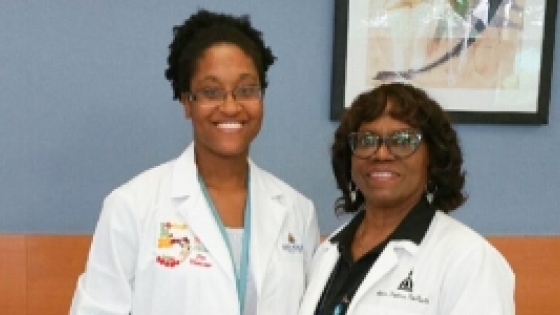RICH LIFE Project (2015-2020)
The RICH LIFE (Reducing Inequities in Care of Hypertension: Lifestyle Improvement for Everyone) Project helped to lower blood pressure and heart disease risk among ethnic minority, low income, and rural populations, by comparing standard clinical performance feedback and education for providers and staff to a more comprehensive approach that includes workshops for health system leaders, a structured team approach to care, and access to sub-specialists or community health worker support as needed for patients with hypertension.
The RICH LIFE (Reducing Inequities in Care of Hypertension: Lifestyle Improvement for Everyone) Project was a pragmatic cluster randomized trial that incorporated collaborative care management, community health workers, standardized blood pressure monitoring, and audit feedback to reduce disparities in blood pressure control and improve patient activation among patients with hypertension. The study used patient and broad stakeholder engagement and applied principles of community-based participatory research to refine and adapt intervention protocols and materials to the needs of participating organizations, clinic sites, and populations.
Why Is This Research Important?
Finding effective approaches for patients to achieve better heart health helps patients and doctors to make critical decisions on real-world care for high-risk patients, and our study combined tested approaches with new ideas in an innovative program that treated patients as whole people, rather than as a disease. Carefully tested interventions that show promise in improving health outcomes will give doctors, insurers, and lawmakers the confidence to support the widespread use of similar programs in a variety of medical settings and among other at-risk populations.
Who Is Involved?
Thirty primary care clinics across Maryland and Pennsylvania, including federally qualified health centers, partnered with the Center in designing and conducting the RICH LIFE Project. We recruited an average of 63 patients from each practice site (total = 1,890 patients) for participation in the study. Eligible patients were 21 years of age or older; were non-Hispanic black, non-Hispanic white, or Hispanic; received care at participating clinics; and had uncontrolled hypertension and another condition such as diabetes, heart disease, or depression. Participants were enrolled in the study for 2 years.
- Co-principal investigators of the RICHLIFE Project are Lisa A. Cooper, MD, MPH, and Jill A. Marsteller, PhD, MPP.
Project Support
- The RICH LIFE Project was funded by the National Heart, Lung, and Blood Institute (NHLBI) in collaboration with the Patient-Centered Outcomes Research Institute (PCORI).
Partners
We are grateful to our partners for their commitment to reducing disparities in hypertension, improving patient outcomes, and their ongoing support of the RICH LIFE Project!
- Partnering health systems: Berks Community Health Centers, Choptank Community Health System, Johns Hopkins Community Physicians, Park West Health System, and Total Health Care, Inc.
- Health insurer partner: Johns Hopkins Healthcare
Project News
Dedicated to news and visuals about this research in action

Other Resources
News Updates and Media Coverage
- Funding partner's overview of the study, Comparing Ways to Reduce High Blood Pressure in People from Different Backgrounds
Have Questions?
- Contact Us with questions or comments.
